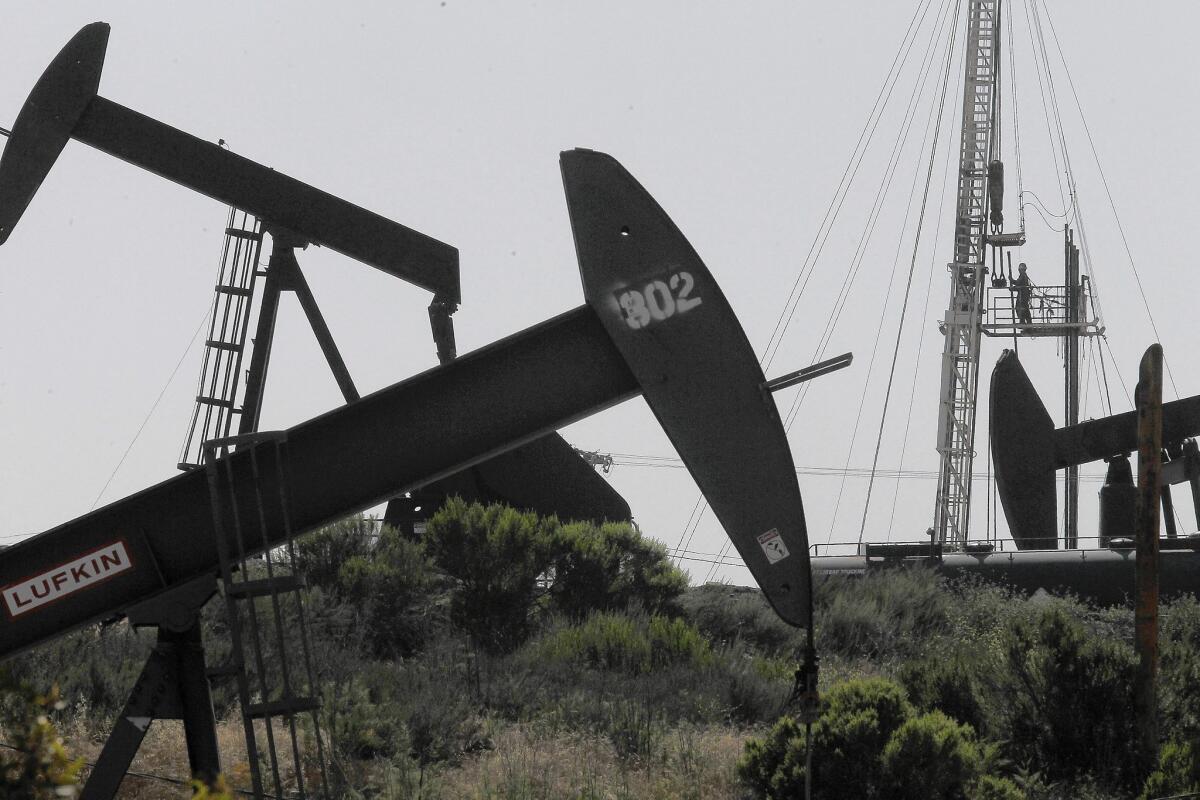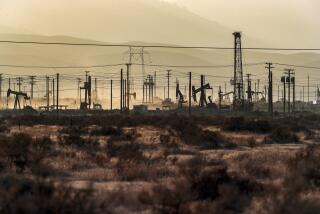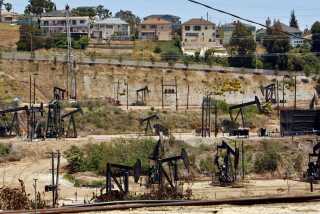Fracking report clears way for California oil, gas leasing to resume

The federal government will resume oil and gas leasing in California following a report released Thursday that found little scientific evidence that fracking and similar extraction techniques are dangerous.
The Bureau of Land Management said the report — and additional environmental reviews — will allow it to begin leasing on public land next year. The announcement is welcome news for energy companies that have been shut out of the oil-rich San Joaquin Valley and Central Coast.
But critics, including environmental organizations whose lawsuits led to a judge’s order to halt leasing last year, said the analysis was rushed by the BLM and relied on spotty information.
The study was conducted by the California Council on Science and Technology, a nonpartisan scientific research organization established by the state Legislature to advise state officials. Its authors noted that they had little time and scant information on which to base conclusions, citing widespread “data gaps” and inadequate scientific resources for a more thorough study.
For example, the report found no evidence of water contamination from fracking in California, but the scientist directing the research, Jane Long, said researchers also had no data on the quality of water near fracking sites.
“We can only tell you what the data we could get says,” said Long, a former director at Lawrence Livermore National Laboratory. “We can’t tell you what we don’t know.”
BLM California State Director Jim Kenna said in a conference call with the news media that the report was not a complete analysis of the effects of fracking. He said more environmental studies will be done as oil and gas development resumes.
Reviews will be conducted on a more localized basis and broader assessments will continue as the industry complies with California’s new, stricter reporting requirements that begin next year, he said.
Fracking involves injecting a high-pressure mixture of water, chemicals and sand or gravel into a well bore to crack open rock formations containing oil or gas. The precise formulations and types of chemicals used have been mostly kept secret by the industry, which says the information is proprietary.
Environmental groups said the report underscored the paucity of scientific information about fracking and called for a moratorium on the practice until more is known about public health and environmental effects.
“They can’t prove any water contamination, but there is no data looking at water contamination — that doesn’t seem to me to be a very rigorous examination of the evidence on hand,” said Jackie Pomeroy, a spokeswoman with the anti-fracking group CAFrackFacts.
The Center for Biological Diversity has no complaint about the study itself — which it praised — but using it to justify new drilling “defies logic and common sense,” said Kassie Siegel, an attorney for the organization.
“The text of the report shows grave, grave reasons for concern,” Siegel said. “This clearly does not support continued fracking in California, yet they release this report then the BLM announces new leasing.”
Long, who directed the research, said investigators from the Lawrence Berkeley National Laboratory and the Pacific Institutes reviewed existing data and studies, but information was difficult to find and at times confusing. For example, she said that information companies self-reported to the quasi-independent website FracFocus did not match disclosures the same companies made to California’s oil and gas regulatory agency.
Scientists asked for more time to conduct research but were told to adhere to the BLM’s timetable, which required a draft report in seven months.
Long also noted that the report raised questions it could not answer about such issues as the effects of the shallow fracking common in California and how it might affect groundwater.
For instance, the report said:
• “Investigators could not determine the groundwater quality near many hydraulic fracturing operations and found that existing data was insufficient to evaluate the extent to which contamination may have occurred.”
• “California needs to develop an accurate understanding about the location, depth and quality of groundwater in oil- and gas-producing regions in order to evaluate the risk of well stimulation to groundwater.”
• “No information could be found about the toxicity of about a third of the chemicals and few of the chemicals have been evaluated to see if animals or plants would be harmed by chronic exposure.”
The BLM issued statewide rules Thursday governing the conduct of well stimulation techniques. The new regulations essentially require energy producers to follow California’s fracking law, which has not yet been fully executed.
A BLM spokeswoman said the agency adopted state fracking standards because they are more stringent than federal rules.
julie.cart@latimes.com
Twitter: @julie_cart
More to Read
Start your day right
Sign up for Essential California for news, features and recommendations from the L.A. Times and beyond in your inbox six days a week.
You may occasionally receive promotional content from the Los Angeles Times.







